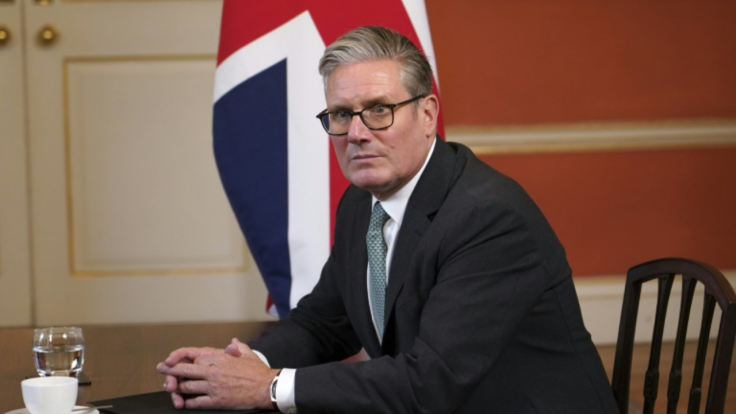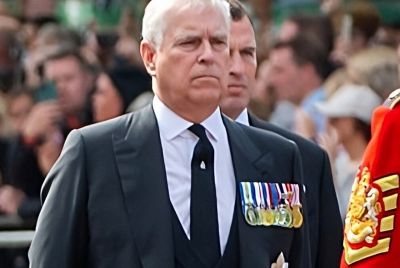Starmer Recognises Palestine — What It Means For UK And The World
Over 150 nations now recognise Palestine, boosting its UN observer status, but full membership status remains blocked by US vetoes

In a bold pivot on 21 September 2025, Prime Minister Sir Keir Starmer announced the UK's formal recognition of Palestine, reigniting debates over two-state solutions and Middle East peace. This move, mirrored by Canada and Australia, defied pressure from US President Donald Trump and drew condemnation from Israeli Prime Minister Benjamin Netanyahu, who branded it a 'huge reward to terrorism'.
As Gaza's death toll surpasses 65,000 since October 2023, Starmer's decision spotlights UK foreign policy realignment, Palestinian statehood aspirations, and risks of West Bank annexation.
Starmer Drives UK Policy Shift with Palestine Recognition
Starmer's announcement marks a dramatic U-turn in UK foreign policy, fulfilling a July 2025 pledge to recognise Palestine if Israel failed to deliver a Gaza ceasefire and two-state commitment. In a video posted on X, he declared, 'In the face of the growing horror in the Middle East we are acting to keep alive the possibility of peace and a two-state solution.'
Today, to revive the hope of peace for the Palestinians and Israelis, and a two state solution, the United Kingdom formally recognises the State of Palestine. pic.twitter.com/yrg6Lywc1s
— Keir Starmer (@Keir_Starmer) September 21, 2025
The UK now joins over 150 UN member states in recognising Palestinian statehood based on 1967 borders with land swaps. This Labour-led change contrasts with prior Conservative reluctance, easing party tensions but drawing domestic fire. Deputy Prime Minister David Lammy noted, 'Will this feed children? No, it won't. That's down to humanitarian aid.'
The UK has committed £101 million in Official Development Assistance for the Occupied Palestinian Territories in 2025/26, supporting humanitarian relief, economic development, and Palestinian Authority reform, including £20 million to UNRWA for essential services like food and shelter. Starmer emphasised Hamas's exclusion from future governance, announcing sanctions on its leaders.
Allies Rally for Two-State Solution
Canada's Prime Minister Mark Carney hailed the step as a 'partnership in building the promise of a peaceful future'. Australia's Prime Minister Anthony Albanese framed it as a 'co-ordinated effort to build new momentum for a two-state solution', aligning with expected declarations from Portugal and France at the UN General Assembly on 23 September 2025.
More than 150 nations now support Palestinian recognition, boosting its UN observer status but falling short of full membership due to US vetoes. Palestinian Authority President Mahmoud Abbas welcomed the UK's decision, stating it paves the way for Palestine to 'live side by side with the state of Israel in security, peace and good neighbourliness'.
Hamas also praised it as an 'important step' while demanding an end to war. The group's control of Gaza since 2007 continues to clash with the Authority's governance in the West Bank. Polls show 50% of Palestinians favour imprisoned Fatah leader Marwan Barghouti over Abbas for leadership.
Netanyahu Slams Move as Global Tensions Escalate
Netanyahu condemned the recognitions, warning they offer 'a huge reward to terrorism' and vowing to double West Bank settlements. Finance Minister Bezalel Smotrich echoed threats of annexation, burying two-state hopes. In August 2025, Israel approved 3,400 new settlement homes.
The US State Department dismissed the recognition wave as 'performative', clashing with allies. For the UK, this strains transatlantic ties but bolsters EU alignment, with French President Emmanuel Macron co-chairing a UN peace conference. Families of hostages protested, citing 48 captives held by Hamas. Conservative Kemi Badenoch decried it as 'absolutely disastrous', arguing it rewards terror without conditions.
What This Means for Britain's Role in Middle East Peace
Starmer's July letter to Abbas outlined 'tangible, timebound steps' for West Bank-Gaza unity. Globally, this 2025 recognition cascade increases pressure on Israel amid UN genocide findings on Gaza operations, which Israel rejects as 'false'. For Britons, it underscores humanitarian priorities, with 73 killed in recent Gaza strikes according to medical sources.
As Lammy urged, 'now is the time to stand up for a two-state solution'. Yet, without ceasefires or meaningful negotiations, symbolic gains may falter, leaving Palestinian statehood dreams fragile.
© Copyright IBTimes 2025. All rights reserved.




















